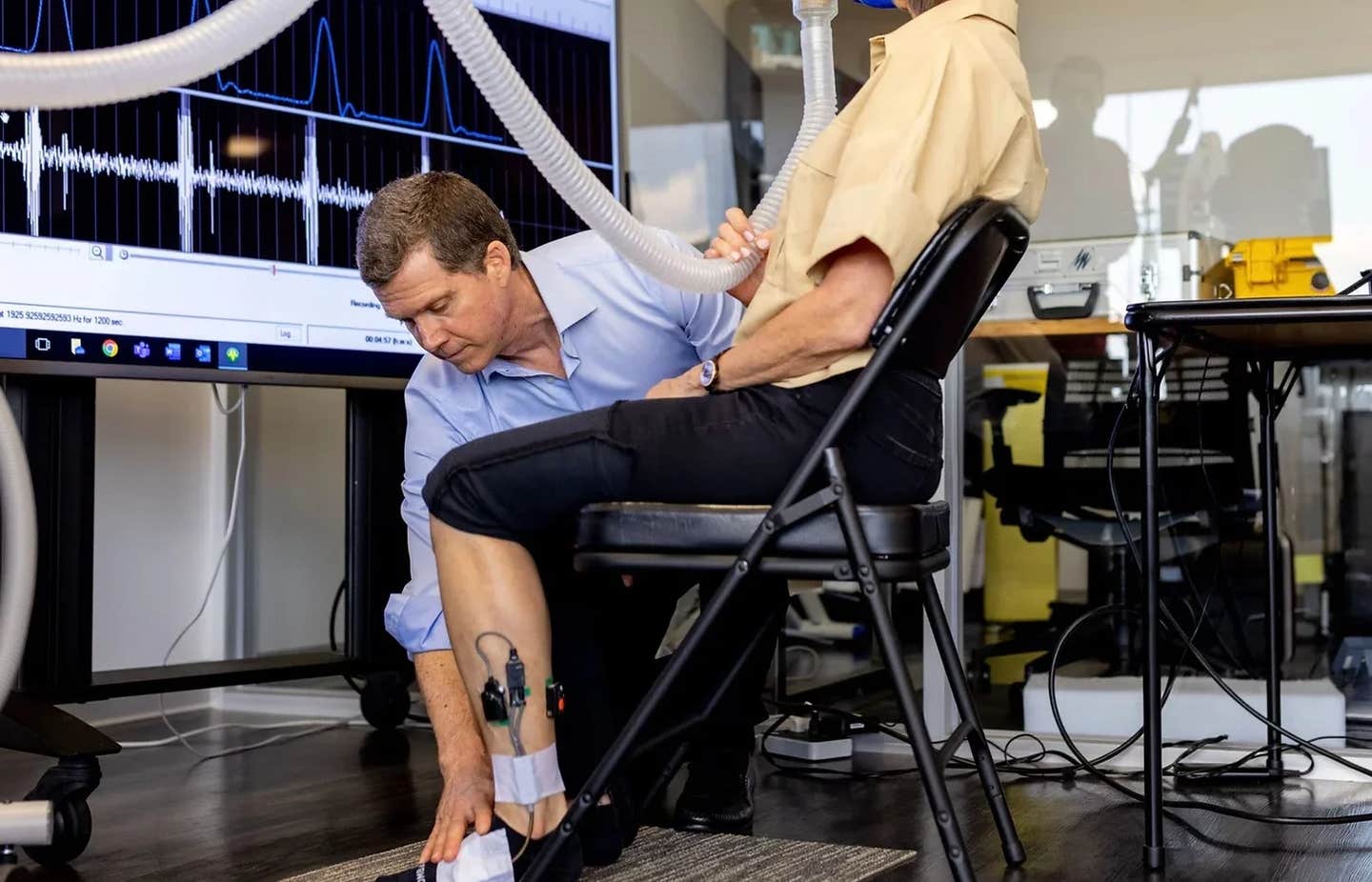Breakthrough nasal spray safely treats recurrent heart issues
The study highlights the efficacy and safety of the experimental drug, etripamil, which patients can administer at home

A nasal spray for treating recurrent episodes of a condition known as paroxysmal supraventricular tachycardia (PSVT). (CREDIT: Creative Commons)
A recent clinical trial conducted by researchers from Weill Cornell Medicine has unveiled promising results regarding a nasal spray for treating recurrent episodes of a condition known as paroxysmal supraventricular tachycardia (PSVT).
Published in the Journal of the American College of Cardiology, the study highlights the efficacy and safety of the experimental drug, etripamil, which patients can administer at home without the need for a physician's supervision.
Dr. James Ip, a professor of clinical medicine at Weill Cornell Medicine and a cardiologist at NewYork-Presbyterian/Weill Cornell Medical Center, led the study. Dr. Ip, along with his colleagues, has been exploring the potential of etripamil as a home-based treatment for PSVT through a series of investigations.
AEs after etripamil with successively treated episodes. (CREDIT: American College of Cardiology)
Notably, Dr. Ip disclosed receiving compensation as a steering committee member for Milestone Pharmaceuticals, the developer of etripamil and the trial's sponsor.
PSVT is characterized by sudden and recurrent rapid heart rhythms triggered by abnormal electrical activity in the heart's upper chambers.
Although these episodes are typically not life-threatening, they can cause distressing symptoms such as shortness of breath, chest pain, dizziness, or fainting, often leading patients to seek emergency medical attention.
Related Stories
Traditionally, PSVT treatment involves hospitalization for intravenous medication administration, and in some cases, invasive procedures like cardiac ablation.
Previous research by Dr. Ip and his team demonstrated that nearly two-thirds of PSVT patients experienced symptom relief within an average of 17 minutes after taking etripamil without medical supervision. Building upon these findings, the latest study aimed to assess the drug's safety and effectiveness in a larger patient population under real-world conditions.
The trial enrolled 1116 patients across 148 sites in the United States, Canada, and South America. Unlike previous studies, participants did not require a pretest dose supervised by a physician. Moreover, individuals with a history of atrial fibrillation or atrial flutter, who were previously excluded, were included in this investigation.
Kaplan-Meier Conversion. Cumulative PSVT conversion rate with etripamil by 30 and 60 min. (CREDIT: American College of Cardiology)
After self-administering the first dose of etripamil, patients monitored their heart for one hour using a home electrocardiogram monitor. They were permitted to take an additional dose if necessary and could self-treat up to four PSVT episodes with etripamil.
Results revealed that two-thirds of patients experienced symptom relief within an hour, with an average time to relief of 17 minutes. Mild, temporary nasal symptoms such as runny nose, nasal congestion, discomfort, and bloody nose were commonly reported after the initial use of etripamil but tended to diminish with subsequent use.
The study provides real-world evidence supporting the safe and effective use of etripamil as a home-based treatment for recurrent PSVT episodes.
By enabling patients to manage their condition outside the hospital setting, this nasal spray has the potential to reduce the frequency of emergency department visits and the need for invasive treatments like cardiac ablation.
This development offers hope for individuals living with PSVT, offering them greater autonomy and convenience in managing their condition.
For more science news stories check out our New Innovations section at The Brighter Side of News.
Note: Materials provided above by The Brighter Side of News. Content may be edited for style and length.
Like these kind of feel good stories? Get the Brighter Side of News' newsletter.
Joshua Shavit
Science & Technology Writer | AI and Robotics Reporter
Joshua Shavit is a Los Angeles-based science and technology writer with a passion for exploring the breakthroughs shaping the future. As a contributor to The Brighter Side of News, he focuses on positive and transformative advancements in AI, technology, physics, engineering, robotics and space science. Joshua is currently working towards a Bachelor of Science in Business Administration at the University of California, Berkeley. He combines his academic background with a talent for storytelling, making complex scientific discoveries engaging and accessible. His work highlights the innovators behind the ideas, bringing readers closer to the people driving progress.



